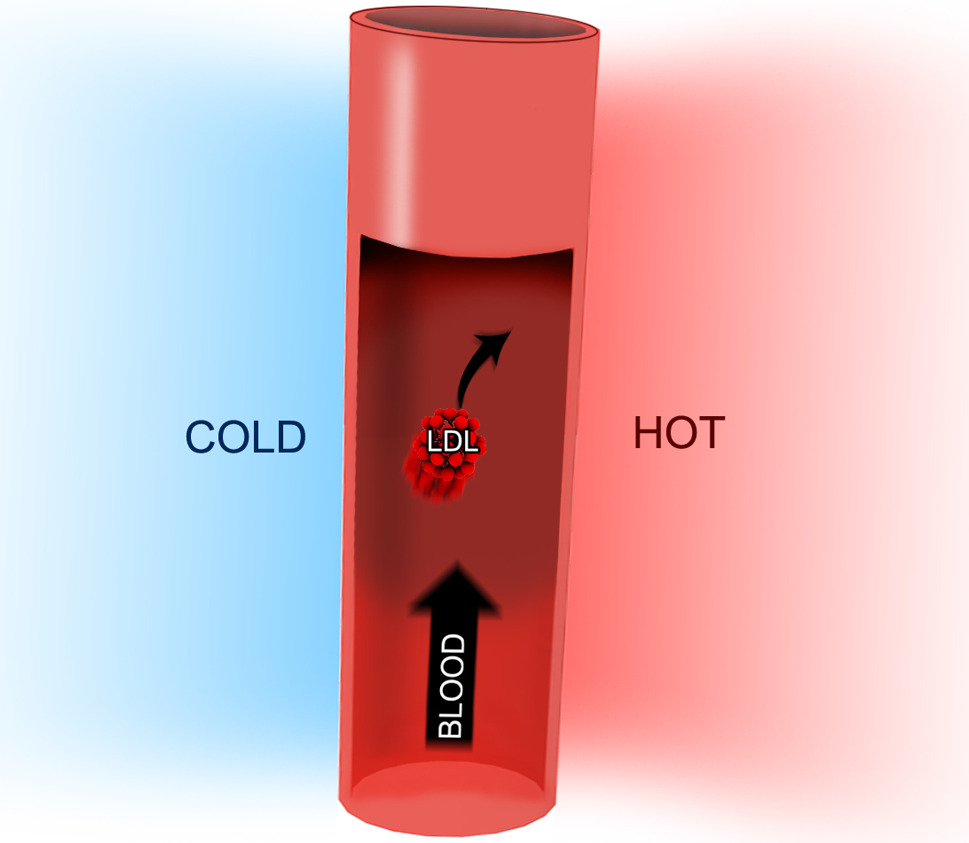https://doi.org/10.1140/epje/s10189-023-00377-5
Regular Article –- Living Systems
The Soret coefficient of human low-density lipoprotein in solution: a thermophilic behavior
Institute of Physics, University of São Paulo, São Paulo, Brazil
Received:
3
June
2023
Accepted:
10
November
2023
Published online:
7
December
2023
Thermodiffusion, or Soret effect, is the physical phenomenon of matter gradients originated by the migration of chemical species induced by thermal gradients. Thermodiffusion has been widely applied in the study of colloidal suspensions. In this study, we investigate the termodiffusion behavior of low-density lipoprotein (LDL) particles, by the Soret coefficient measurement. It is a new approach to studies of plasma lipoproteins. The experimental work was based on thermal- and Soret-lens effects. These effects were induced by laser irradiation of the samples, at two different time scales, in a Z-scan setup. LDL samples were analyzed under physiological conditions, notedly, ionic strength and pH, and at different temperatures. Temperature dependence of Soret coefficient showed a slight decrease in the absolute value of this coefficient, as a function of temperature increasing. However, its sign does not change at the temperatures investigated (15, 22.5 and 37.5 °C). The results show that LDL particles exhibit thermophilic behavior. The origin of this thermophilic behavior is not yet completely understood. We discuss some aspects that can be related with the Soret effect in LDL samples.
Supplementary Information The online version contains supplementary material available at https://doi.org/10.1140/epje/s10189-023-00377-5.
Copyright comment Springer Nature or its licensor (e.g. a society or other partner) holds exclusive rights to this article under a publishing agreement with the author(s) or other rightsholder(s); author self-archiving of the accepted manuscript version of this article is solely governed by the terms of such publishing agreement and applicable law.
© The Author(s), under exclusive licence to EDP Sciences, SIF and Springer-Verlag GmbH Germany, part of Springer Nature 2023. Springer Nature or its licensor (e.g. a society or other partner) holds exclusive rights to this article under a publishing agreement with the author(s) or other rightsholder(s); author self-archiving of the accepted manuscript version of this article is solely governed by the terms of such publishing agreement and applicable law.





